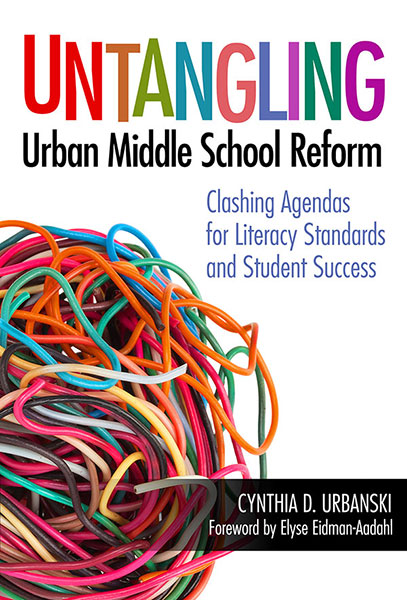Narrowing the Lens: Teaching as Narrative Negotiation
A Chapter from Untangling Urban Middle School Reform
Summary:
How do competing narratives of education and writing shape the identities that teachers adopt and use to define what makes a "good teacher"? Cynthia Urbanski examines this conflict at work in her experience working as a consultant in an urban middle school. Originally published on July 1, 2016Excerpt from chapter:
“The students and teachers in the narratives in this book are not new to the school, the community, or to writing, but they are new to the narrative of writing that the Writing Project brought and the accompanying writing assignments. The teachers and students then had to improvise in order to perform good teacher and good student identities in these new social situations. Holland et al. point to improvisation as having transformative potential. Improvisation opens up space, much like Bettie’s concept of ‘passing,’ for change.
Over time, the improvisations of earlier generations can become the expectations of the next, espousing change. Gee (2011) refers to this passing and improvisation, or these newly negotiated identities, as discourse identity or D-identity. The negotiation of narratives must be recognizable by others in order for it to be an identity, so the power for identity construction lies in discourse or dialogue with other individuals. These identities are not distinct from institutional identities, and so institutions certainly make use of discourse identities in order to solidify the institution’s social hegemonic position. For this reason, improvisation does not guarantee change or transformation; it simply has the potential for it because we are constantly making and remaking scenes in our daily lives.”


